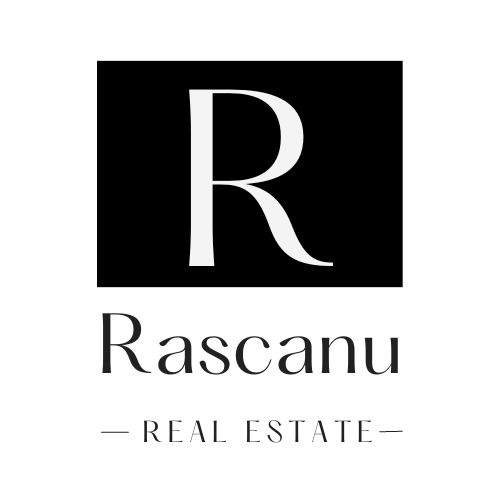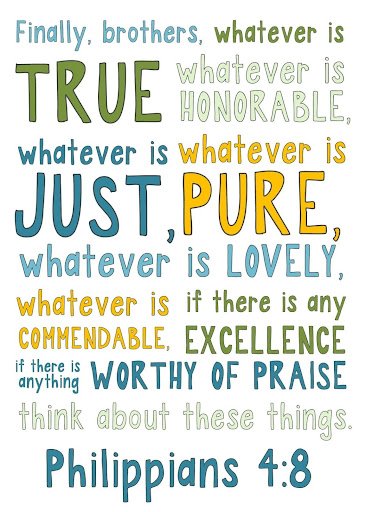How to Reach Your Potential: An Interview with Louise Adongo
Louise Adongo is taking part in "How to Reach Your Potential" initiative, an interview series featuring leaders who inspire Alex Rascanu and whose insights can help you reach your potential.
About Louise:
Louise Adongo is Manager of Policy and Corporate Supports at Housing Nova Scotia. A social change agent with strong leadership and collaborative capacity, she has received a GoverNEXT Rising Star award, Minister’s and Premier’s Awards of Excellence, and a Woman of Influence peer-recognition award from the African Canadian Woman in Public Service. She currently sits on the Board of Credit Union Atlantic and the Steering Committee for Brilliant Labs NS. Previously, Louise volunteered on the Board of the Health Association of African Canadians and was a member of the Canadian Centre for Vaccinology’s Health Policy Translation Working Group.
Louise's multi-disciplinary academic background and diverse life and work experiences render her imperfect for siloes. Unafraid to try doing old things differently, she has worked on projects in program development for public and not-for-profit sectors in Nova Scotia and parts of Africa. During her first community development experience, she discovered her passion for social justice and equitable resource use. She has since worked in various research, policy and evaluation roles in provincial government for close to a decade.
An avid reader, traveller and gardener, Louise holds graduate degrees in Biochemistry and Applied Health Services Research. She is cautiously curious about how we might encourage the practice of difficult conversations at the interpersonal and community level, and agrees with the oft-quoted James Baldwin: 'Not everything that is faced can be changed, but nothing can be changed until it is faced.'
Connect with Louise on LinkedIn.
Alex: What is your life’s purpose?
Louise: I ask myself this question about once every 5 years. A friend of mine once called it my quarter-life crisis (which doesn’t quite work but let’s set aside the weird math) [smile]. I am of Christian faith and often find the passage Philippians 4:8 great for helping me focus and get re-centered when I feel that I have lost focus for myriad possible reasons.
In my most recent go around with this question while I was out for a run training for a 10k race, I thought about what makes me happy, what motivates me and when I feel most confident. It drew me to the following statement which I hope while succinct captures the depth and breadth of how I want to live: “Honour myself by honouring others.”
Alex: What are the three things you’re most passionate about?
Louise: Collaboration, Inclusion and Innovation.
Alex: How do you stay healthy? What’s your main health-related goal?
Louise: I run, bike and hike as often as I can when the weather is accommodating and I also work out (love kettlebells at the moment). And my main health related goal is balance – body, mind and spirit.
Alex: How do you build wealth?
Louise: This is an interesting question or maybe just the timing is interesting. My friend Nnamdi Oranye is part of the African diaspora asking questions about how we might spur (more) innovation in Africa and see the benefits of disruptions found across the globe. As part of that he wrote an Op Ed: The Tipping Point for African Innovation.
[…] opportune time for African innovation … “the question is why? The answer often lies in our own understanding of ourselves and how we assess what we value." […]
- excerpt from Nnamdi’s Op Ed
In response to the question, “What do you think are the weaknesses of the African continent when it comes to making a difference in terms of innovation. Some say that the heavy reliance on a single commodity such as minerals. What could be other factors and what could be done about it?” that was posted in promotions for this Op Ed on LinkedIn, one commenter said something that really resonated with me:
“We need to understand the difference between 'making money' and 'creating wealth'. We tend to think that they are the same. And so, our business behaviour, from CEO to vendor is to grasp at the opportunity to 'make money'. This results in short-term thinking, which stands in the way of innovation. What is in the way is not education, a focus on minerals etc. It is our philosophical orientation to business and life that needs to change.”
Alex: What’s your main financial goal?
Louise: Another great question, I have had an opportunity to develop greater financial literacy as a member of the board of a credit union. But on a more personal level, in part as I felt the overwhelmingness of my student loans in times of under-employment, I have reflected on my relationship with money and debt. I love watching Gail Vaz Oxlade’s shows on TV. But probably the biggest eye-opener for me in my setting of financial goals was reading Kate Northrup’s book Money: A Love Story. (I mean she even encourages us to call our bills invoices for blessings already received!)
In short, my main financial goal is to continue to be curious about, and therefore hopefully continue to resolve my limiting beliefs about money. Whether it is earning it, spending it or investing it.
Alex: How do you balance work and family life?
Louise: Not well is the short answer, and it is something that will probably always remain on my “do better at” list as there is likely always going to more I can do to be present more both at work and with my loved ones.
However, recently at the FCI-CWI Women's Leadership conference, a speaker spoke of “work-life integration” rather than work/life balance which is quite mythical, if anything it is to be gleaned from the laughter I heard in the room when she spoke of not ever finding work/life balance and introduced the new term.
Alex: How do you enjoy spending time with family and friends?
Louise: Oh, so many ways but maybe the easiest way to talk about how I enjoy time is to consider that I love words and I love conversation. So, there is a sacred place for ‘snail mail’ in my heart and I am in a few book clubs. I also enjoy cooking meals with friends and sharing a laugh over after work socials. Sometimes when I have not connected with a friend in a while I like to go hiking, visit local markets (farmers' or craft) or spend way too long chatting at home on a comfy couch or in a café. I am also quite adventurous so my friends and family know I am often game to try out new activities with them.
Alex: What has been the most fulfilling role you’ve ever had, or the most fulfilling project you’ve been involved with so far?
Louise: It is difficult to just think of one. I have been fortunate to work on a number of great projects.
I am proud of work I did with Ann Divine, a great mentor and friend at the NS Human Rights Commission and in amplifying voices of Black and Immigrant Women through International Women’s Day (March 8th) events in 2008 and 2014.
In 2015, I worked with Chantal Brine to host an event for women and girls with Vicky Saunders, founder of SheEO. This was fulfilling because among many things I witnessed her ‘walking the talk’ regarding radical generosity when she responded to my ‘cold-call’ reach out on LinkedIn on a completely different project which led to that event.
I also felt proud of the contribution I made in my board role at CUA where I provided input to the 2016 Annual Community Impact plan and supported the proposed subcommittee name change from Governance and CSR to Governance and Community Impact.
I could say more in terms of conversations about needs to create opportunities to strengthen digital literacy among Black and First Nations youth, that led to my role on the Nova Scotia Brilliant Labs steering committee or “that one time,” smile when I advocated to another great friend and mentor Sylvia Parris to bring Kimberly Bryant to Halifax to speak to members of the African Canadian Women in Public Service, and cross-sectoral senior leadership, as a role-model for visibility in the ICT sector. All of these roles and projects have been quite fulfilling.
And I cannot wait to see the fruits of these efforts as I look to the future and think about work I would like to do to support the movement of having more women, and for me specifically diverse representation in boards across all sectors. I am inspired to do this by Kathleen Taylor's words at the opening plenary of 2017’s Governor General’s Canadian Leadership Conference, where she said, regarding increased diversity of boards, that “diversity on boards was not a supply problem…”. I am also motivated to see what might be in this work by the Deborah Gillis at the Oct 24th Nova Scotia Status of Women 40th anniversary celebration, shared about what change/progress is happening and is still to come.
Alex: What’s one career planning lesson that has made a significant difference in your life?
Louise: Again, I can’t only think of one but I promise to only share two [smile].
Ann Divine very early in my career encouraged me to keep a record of my professional achievements and to track them by the leadership competencies I exhibited. I have since added contacts/ references who can verify what I document. It has been a very useful personal and professional record, especially on days when things don’t go as well as I might like. And it has also been a great confidence booster as I see my growth and trajectory.
My second lesson has been from Eleanor Beaton , who has a really great podcast that I would encourage anyone who wants to learn the ‘how tos’ of Fierce Feminine Leadership to subscribe to her podcast. Eleanor has a wealth of information on what holds women back from achieving their self-defined goals and she speaks from a place of personal and professional experience in a way that resonates with me at different times through any given year and leaves me with clear next steps and action items that don’t feel overwhelming to execute. My lesson from her was to be aware of the hot mess that happens when one up-levels. And recognize that it is part of becoming the person that I need to be at this new level experience.
Ok I might have one more.And that is FOCUS, to acknowledge that my sphere of interest versus my sphere of influence are not the same size. Many people tell me this.
Alex: What would you like your legacy to be?
Louise: If I think of legacy as what I want people saying about me when I am not in the room, or what would be written on my epitaph. Then I want my legacy to be “she persisted” [smile].
And "She had conversations with people and asked questions that shed light on what is possible were we to work in a "fresh" way. Once people saw the possible, it became actionable as people "yearned for the vast and endless sea"."
Alex: Thank you so much for taking part in this interview, Louise! You're such an inspiration! Your insights and openness are much appreciated.
Did you find one or more of Louise's insights helpful? Are there any ideas or resources that came to mind as you read the interview? Know someone we should interview?
We encourage you to share your thoughts and feedback in the comments section below. Alternatively, feel free to send us an email using our contact us form.




